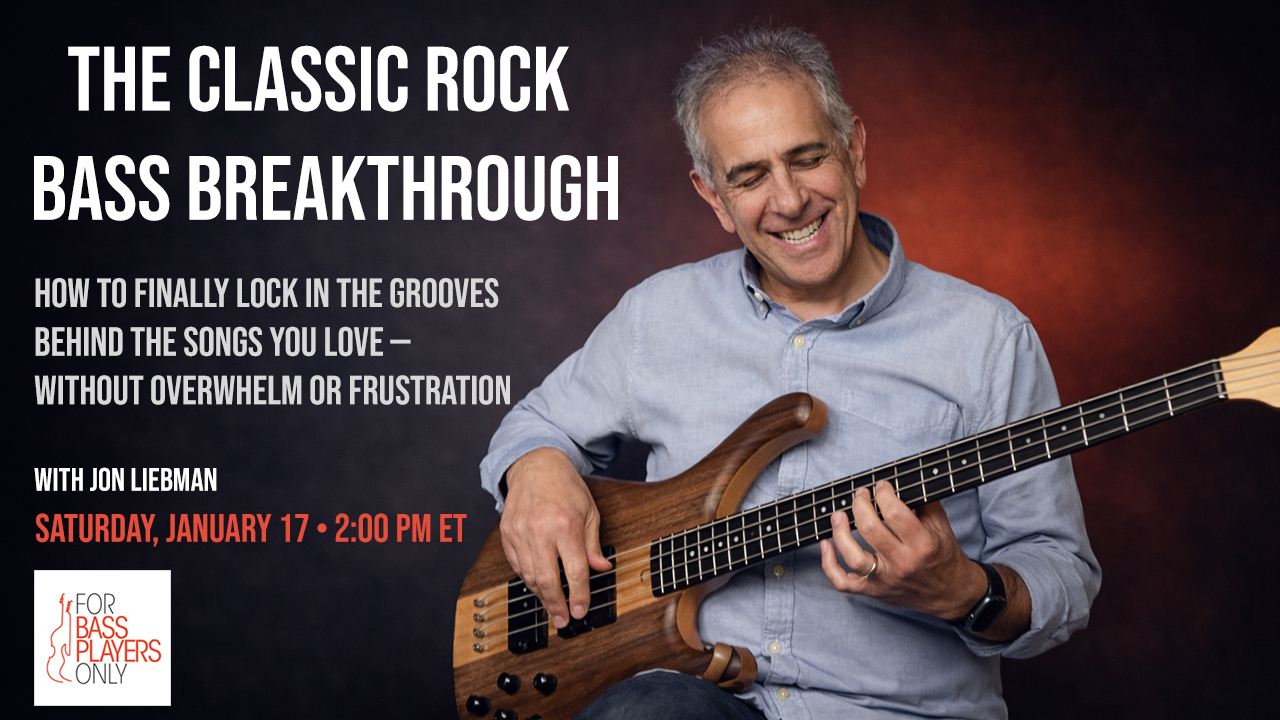Early recordings may have offered a better bass education
By Jon Liebman
Week of August 9, 2021
Older bass players remember what records used to sound like. The bass was a pretty conspicuous part of the mix (case in point, James Jamerson on all those Motown classics).
Fast forward to today. Is the bass getting lost in the mix shuffle?
In this week’s FBPO interview with Testament bassist Steve Di Giorgio, the topic was discussed in some detail. Steve’s biggest beef is that people learning bass today are missing out on the opportunity to learn what the instrument is supposed to do. As a result, they’re unable to develop the confidence they need in order to play bass the right way.
You may or may not agree with what Steve has to say, but it sure did get me thinking.
“When I was young,” Steve says, “the bass was so prominent and so important. But once guitar players learned to get equipment, and effects dominated every frequency, they were pushing the bass guitar down.”
According to Steve, when the bass isn’t easy to make out in a recording, wannabe bass players are missing out on the ability to learn bass correctly. This affects not only young players, but older players and late starters too.
“A lot of times the bass is pushed back in the mix,” says Steve, “and you don’t hear everything the bass is doing. So sometimes when people are learning a song, they just kind of meander through and find their way through the song because, without being able to hear the decibels of the bass, they’re left on their own to kind of interpret what it does.”
And when that happens, Steve contends, people end up just guessing what the bass is supposed to do, without developing any real confidence as a bass player.
“That kind of stuff really bothered me,” he says, “because of my upbringing on how the bass was equally important and dominant in the mix.”
So what can be done about it?
“My advice to these players,” says Steve, “is always, ‘Get your shit dialed in so that you’re confident and you give no one a reason to push the fader down or push you back into the shadows of the stage.’”
Learning bass takes time and effort of course, but the results are indescribable. Older bass players – and those familiar with early recordings – understand what the bass is capable of doing. Regardless of how old you are, if you want to learn bass, be sure to set out with a proper plan designed to get you the results you want. You’ll love it in the end.
“No matter what age you are,” Steve says, “just enjoy what you’re doing and go into it with a purpose of doing it well. When you work hard and practice and get good at it, you’re going to enjoy the result a lot more because then that confidence is there, and then all that hard work becomes worth it.”
How about you? Have a thought on the subject? Leave a comment below and let me know what you think. In the meantime, check out my interview with Steve here.






This is mainly with Rock bands and Rock music that you hardly hear the Bass in the mix.Other genres like Funk,R&B,Jazz,Reggae, the Bass is more prominent in the mix thats because those genres are more Bass groove orientated type music.